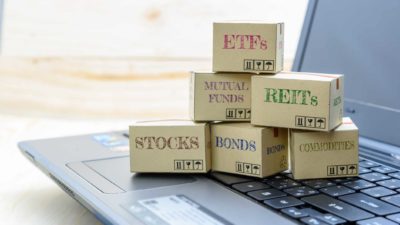Buying bonds, whether they be corporate bonds or government bonds, is not as popular here in Australia as it is in the United States.
The US has a strong culture of investing in bonds and Treasury Bills. But Australia's debt markets are not nearly as accessible. In fact, the only way for most retail investors to buy bonds here is through exchange-traded funds (ETFs). But perhaps Telstra Group Ltd (ASX: TLS) is trying to change that.
A bond is a wholly different investing vehicle than a share. Where a share represents ownership of a company, a bond is, in effect, a loan. When a company or government issues a bond, it is bought by investors. These investors are then entitled to receive interest as long as they hold the bond.
It is nothing more than a loan, and does not represent ownership of the company (or government) that issues it.
Investors traditionally invest in bonds because they are viewed as 'safer' than investing in shares. This is particularly the case for government bonds. Because a government can't go bankrupt, the debt that it issues is typically classed as 'risk-free'.
Is Telstra going to issue bonds to everyday investors?
Companies, unlike governments, can go broke. But most ETFs that cover corporate bonds only invest in those issued by the most financially healthy companies in the markets. That arguably covers Telstra Group.
According to reporting in the Australian Financial Review (AFR) this month, Telstra, along with fellow ASX 200 blue chip Wesfarmers Ltd (ASX: WES), is reportedly considering selling bonds directly to retail investors for the first time.
The companies are keen to boost their capital by appealing directly to retail investors, who might be excited to cash in on rising interest rates. The interest returns from bonds are directly tied to interest rates.
Many investors began ignoring this asset class altogether when central banks reduced global interest rates to near-zero levels during the pandemic. But now rates have started rising, the situation has changed.
Bond coupon rates from top corporate issuers have reportedly risen from less than 2% to more than 5% over the past 12 months. If Telstra issues a five-year bond, it could pay an interest rate of around 5%. That is more than the dividend yield on offer from the company at present.
If Telstra and Wesfarmers do go down this path, it could unlock a new source of income for retail investors. However, this is just speculative at this point. Telstra's investor website still tells us that "we do not offer bonds to retail investors or the general public".
So for now, investors might have to stick with ETFs like the Vanguard Australian Corporate Fixed Interest Index ETF (ASX: VACF).
But this space is definitely one worth watching.








